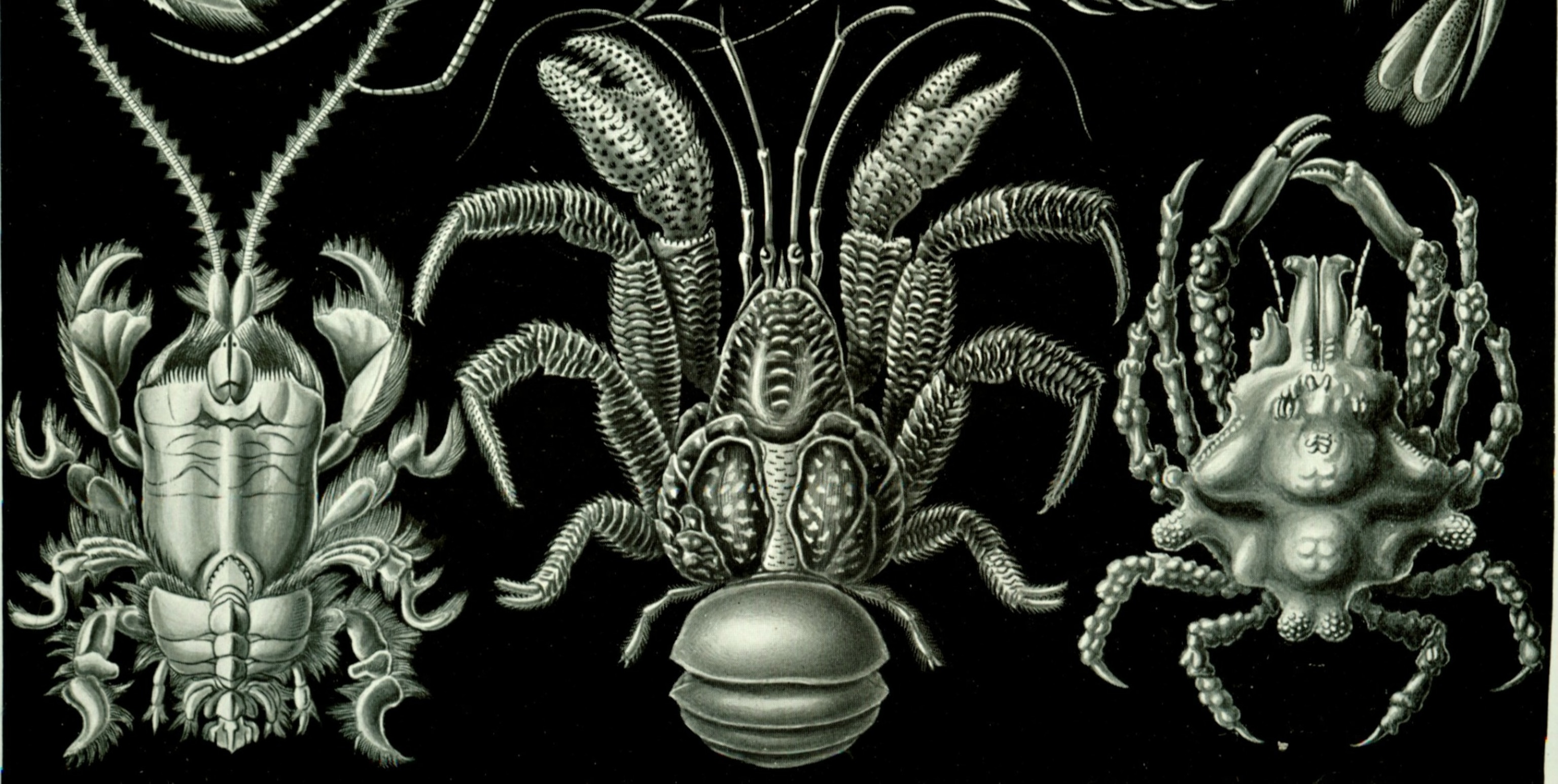Paleontology is often viewed as a science of the dead. The goal of the fossil expert is to find, restore, and understand life that no longer exists, filling out the long backstory of the modern world. But paleobiologists with an ecological bent are challenging this scientific stereotype. The past is not merely a graveyard of strange species, but a record of how life responds to environmental changes that our species is now having an ever-greater role in spurring. Given how greatly past climate change has altered the pattern of life, especially, researchers are scouring the past for hints about how catastrophes triggered by human activity might unfold. Ancient crustaceans, and the reefs they lived upon, may hold such clues.
In a new Geology study, Kent State University paleontologist Adiël Klompmaker and coauthors tracked the history of lobsters, shrimp, true crabs, and squat lobsters in the 252 to 66 million year window of time called the Mesozoic. This was the timespan when these major groups, still present today, evolved and spread. And as Klompmaker and colleagues found when they looked at the habitats the fossil crustaceans were found in and fluctuations in prehistoric sea level, the fate of crabs and their kin has been closely tied to reefs.
The evolutionary story of crustacean lineages is one of ups and downs. Outlined in the new study, the rough version of the story goes something like this.
During the 252 to 201 million year old stretch of Triassic time, when weird crocodile cousins ruled the terrestrial realm, shrimp and lobsters were the dominant forms of crustaceans in the seas. True crabs didn’t start to become a prominent presence in the seas until about 175 million years ago, but their diversity quickly ramped up and outpaced that of the lobsters and shrimp. Crustaceans in general took a major hit during the mass extinction that closed the Jurassic, about 145 million years ago, but lobsters, shrimp, true crabs, and squat lobsters picked up where they left off in the Cretaceous, with true crabs and squat lobsters remaining dominant. As far as crustaceans go, the seas just prior to 66 million years ago may have looked familiar – Klompmaker and coauthors estimate that about 65% of decapod species were crabs and squat lobsters, similar to the count today.

Changes in reefs appear to explain the explosive diversification and recovery of true crabs and squat lobsters through time. The spread of these particular crustacean groups happened during the Late Jurassic, when reefs were expanding, and many of the fossils of these decapods from this time studied by Klompmaker and coauthors were found in sediments associated with reefs. The pattern also shows that decapod genera which lived on reefs had many more species than those that did not, making ancient reefs prehistoric biodiversity hotspots where new species spun off from their parents more often than those scuttling about elsewhere.
The fossil record of crustaceans is far from perfect. The invertebrates don’t fossilize as readily as other organisms, and compared to about 15,000 decapod species known today, a comparatively slim 3,300 species are known from 542 to 1 million years ago. All the same, from the partial record that exists, Klompmaker and colleagues make the case that reefs were critical to the evolutionary pattern of these hard-shelled marine creatures.
While not as well-known as other mass extinctions, the global disaster at the end of the Jurassic had a major influence on evolutionary history. The causes of the catastrophe remain unclear, but fossils leave a stark trail of victims and survivors. In the seas, reefs died back and took many crab and squat lobster species with them. Today, Klompmaker and colleagues point out, extant crabs, squat lobsters, and shrimp are similarly tied to modern coral reefs that are under threat from ocean acidification driven by human input into the atmosphere, climate change, disease, and other forms of destruction. As the reefs go, so will their decapods in an echo of Jurassic tragedy.
But the fossil record also offers hope. Reefs have taken various forms through time – incorporating organisms such as bivalves, algae, now-extinct lineages of coral – and decapods diversified among the various reef types for over 150 million years. Even if the reefs we know are totally annihilated, decapods surviving elsewhere in the seas may colonize and eventually proliferate among whatever reefs may form over evolutionary time. Life will survive the self-destructive compulsions of our species, but in forms woven from the ecological tatters we leave behind. From concentrated studies of modern ecology and the big picture view of the fossil record, we know how critical reefs are to life on Earth and how our species is acting as an instrument of ecological devastation. The questions is what we’re willing to do to prevent our fossil legacy from being a scar of the world’s sixth mass extinction.
Reference:
Klompmaker, A., Schweitzer, C., Feldmann, R., Kowalewski, M. 2013. The influence of reefs on the rise of Mesozoic marine crustaceans. Geology. doi: 10.1130/G34768.1
